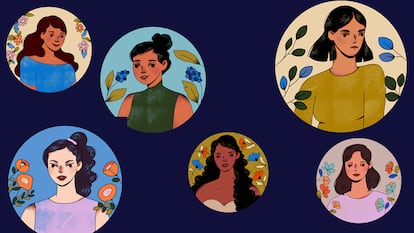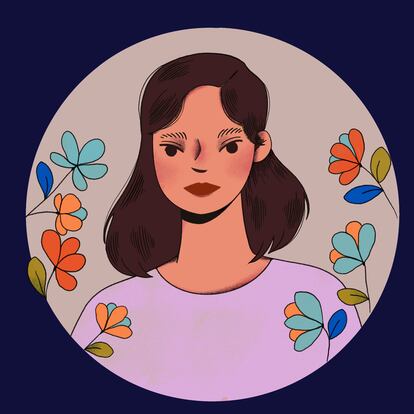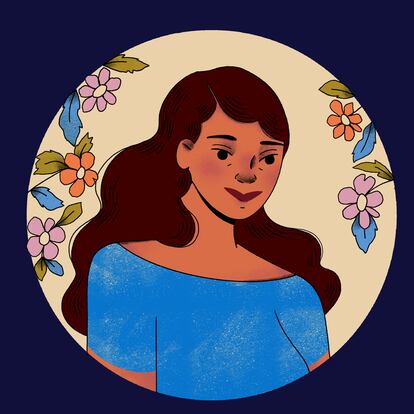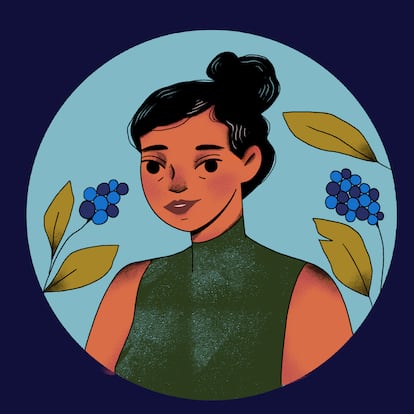When anti-abortion laws kill: The Central American women fighting for their rights
On Wednesday, the Inter-American Court of Human Rights will hear the case of Beatriz, who died at age 21 after being denied an abortion. EL PAÍS looks at the other women who have lost their lives due to the region’s restrictive rules

Beatriz was just 21 years old, with a nine-month-old son and many financial difficulties, when she was diagnosed with lupus. A year later, in March 2013, she found out she was pregnant for the second time in the emergency room of a Salvadoran hospital. When the first ultrasounds were done, up to 15 doctors recommended an abortion as the fetus was growing without a skull or brain and the pregnancy would further weaken her delicate health. If she reached labor, she would not survive. But in El Salvador — one of the five countries in Latin America and the Caribbean where abortion is banned under any circumstances — it was very difficult for Beatriz to terminate the pregnancy that was jeopardizing her life. Despite the warnings, everyone turned their backs on her: the state, health workers and the justice system. By the time the Inter-American Court of Human Rights (IACHR) intervened, it was too late. The outcome was irreparable: the preventable death of a young woman, an orphaned boy and an entire family whose lives have been upended. The anti-abortion law, however, remains intact.
The Salvadoran Constitution does not permit abortion under any circumstances, alleging that life begins at conception. According to the country’s Penal Code, women who abort voluntarily or suffer miscarriages are murderers. On the street and in jail, women accused of having an abortion — including those who have suffered a miscarriage — are called “child killers.” These women can be sentenced to up to 50 years in prison, while accused doctors face sentences of up to 12 years. “When it comes to the justice system,” Humberto, Beatriz’s brother, tells EL PAÍS by phone, “they simply prioritized the life of the fetus before the life of my sister.”
Despite the total ban on abortion, Beatriz’s story moved many in El Salvador, where women have been fighting for decades for sexual and reproductive rights. In 2013, her case reached the IACHR thanks to lawyers from El Salvador’s Citizen Association for the Decriminalization of Therapeutic Abortion and the Center for Justice and International Law (CEJIL). The IACHR forced the state to allow her to have an abortion. Beatriz managed to terminate her pregnancy 81 days later, but her body had succumbed to the disease, which, according to the doctors, had been aggravated by the pregnancy. On October 8, 2017, Beatriz died after a minor traffic accident due to her extremely weak physical condition.
“I hope my example serves to ensure that other women do not go through what I suffered,” Beatriz wrote in a letter in mid-2013. This Wednesday, her wish could begin to come true. The Inter-American Court of Human Rights will hold the first hearing of a historic case: Beatriz vs. El Salvador. For the first time, the region’s highest court will discuss the serious toll of El Salvador’s total abortion ban. The ruling could loosen one of the most restrictive laws in the world and set a precedent for the other four Latin American countries that still sentence women for having an abortion: Nicaragua, the Dominican Republic, Haiti and Honduras.
“In Central America, we are seeing the regression of women’s human rights. The resurgence of conservatism and authoritarianism is a huge loss of rights. And we [women] are always the first to fall,” said Claudia Paz y Paz, the former attorney general of Guatemala and current director of CEJIL’s Program for Central America and Mexico, in a statement to EL PAÍS. “We are facing a key moment for the validation of our rights.”
Beatriz is the latest in a long line of women who also took on Goliath. The list includes Manuela in El Salvador, Esperancita in the Dominican Republic, Amelia in Nicaragua, and Ana and Aurora in Costa Rica. All of them suffered greatly — with three losing their lives — due to draconian legislation that prevented them from making decisions about their bodies. The IACHR has heard many similar stories.
These are their cases:
“The state failed her”
Manuela, El Salvador. She died in prison at the age of 33.

Manuela died in prison on April 30, 2010. Two years earlier, she had been sentenced to 30 years for aggravated homicide. Her crime: suffering an obstetric emergency in the bathroom of her humble house in a rural area of El Salvador. Manuela’s accuser, the doctor she had called on for help, said that she had induced the abortion to cover up an infidelity. Her case was taken to the IACHR, which issued a historic ruling: “The court pointed out that obstetric emergencies, because they are a medical condition, cannot automatically generate a criminal sanction.” Although the sentence did not center on women’s right to abortion, it did highlight how women are persecuted for having an abortion, even in cases of miscarraige. The region’s rigid total ban on abortion was beginning to crack.
Everyone violated Manuela’s rights, starting with the doctor who reported her. Doctor-paitent confidentiality was ignored; she was interrogated by police even though she was still recovering; she was handcuffed to a hospital bed for several days; her parents — who, like Manuela, could not read or write — were asked to sign a statement against her; the police officer and lawyers who went to the hospital called her an “easy woman”...
“The entire chain of state support failed her. Furthermore, her trial was riddled with gender stereotypes,” explains Fernanda Vanegas, from the Center for Reproductive Rights, the team that brought her case to court. The 2021 IACHR ruling ordered El Salvador to regulate professional medical confidentiality, develop a protocol on how to adress obstetric emergencies, train health workers and create a comprehensive education plan. A year later, El Salvador has “timidly” implemented only the first two points. “The protocols are not perfect but they are there, they exist. There are other considerations about how widely they are being implemented, but they are under other pending measures.”
In another historic win, the court recognized that the judicial processes in El Salvador were biased by the fact that Manuela was a woman. In view of this, the IACHR called on judges to receive training on how to see past the gender stereotypes that tend to shape what they consider to be “appropriate behavior for women.”
According to the Citizen Association for the Decriminalization of Therapeutic Abortion, at least 140 women in the past 20 years have been persecuted for suffering an obstetric emergency. Rosita is the most recent victim to be released from jail. She had fallen pregnant after being raped, and was sentenced to 30 years in prison for having a miscarriage. Six other women remain behind bars.
“They put the life of a fetus ahead of my daughter’s”
Esperancita, Dominican Republic. She died at the age of 16.

For 11 years, Rosa has felt the weight of her daughter’s absence. On July 2, 2012, Rosaura Almonte Hernández, known as Esperancita, went to the doctor with a high fever. She was told she was seven weeks pregnant and suffering from “a serious blood problem.” Weeks later they found out it was acute lymphoblastic leukemia. She urgently needed chemotherapy, but she was denied treatment as it was not compatible with the life of the fetus. On August 17, 46 days after she was hospitalized, she suffered a miscarriage, went into respiratory arrest and died. She was just 16 years old. “They put the life of a fetus ahead of my daughter’s. My daughter was killed. The Dominican state killed her,” says Doña Rosa, who lost her only daughter, in a video call to EL PAÍS.
Esperancita’s case made headlines around the world and shone a light on the situation in the Dominican Republic, where women do not have sexual and reproductive rights. In December, the country approved a new penal code, but refused to loosen its total ban on abortion. Women’s right had called for the code to include three grounds for pregnancy termination: when the life of the mother is in danger, when the fetus has life-threatening malformations and when the pregnancy is the result of rape or incest. But the reformed code did not agree to these terms: the anti-abortion rules remain as they were when they were written 139 years ago.
“When abortion is illegal, it is difficult to find out about stories like Esperancita’s. Women are forced to resort to unsafe abortions outside the health system, meaning there is huge underreporting. Many may die or have health complications and we don’t know about it,” explains Marcia Aguiluz, the legal director for Latin America at Women’s Link Worldwide. “We need to discuss access to abortion based on evidence, not on opinions,” she says.
Rosa filed two cases in the Dominican Republic: a criminal complaint for medical negligence and another complaint in the contentious-administrative court that blamed the Health Ministry for her daughter’s death as it did not ensure Esperancita got the care she needed. In the first case, no one has yet been punished. The second case, after being rejected twice, is waiting to be heard by the Supreme Court. It was recently admitted to the Inter-American Commission on Human Rights (IACHR). “In my country, I am ignored. But if I have to go from country to country, sharing what they did to my daughter, I will do it. Justice has to be done. I need someone to recognize what happened,” says Rosa.
“They told her that [the pregnancy] was compatible with chemotherapy”
Amélia, Nicaragua. She died at the age of 28.

In 2007, Nicaragua took a step backwards with respect to women’s sexual rights by including abortion as a crime in the penal code reform. Two years later, Amelia came head-on with that legal setback, in a case very similar to Esperancita’s. She was told she was pregnant and suffering from cancer that urgently required chemotherapy. After the state refused several times to grant her access to treatment, and only after the IACHR intervened, was she able to receive chemotherapy, but only on the condition that she carry her pregnancy to term since both were “perfectly compatible.”
Guillermo González, the health minister at the time, announced that he himself would pay for the “special medicines” brought from Europe. Seven months after accessing treatment, with little information and precarious medical care, Amelia suffered a miscarriage at home and died at the age of 28, leaving her 11-year-old daughter an orphan.
“They forced her to continue with the pregnancy because they lied to her,” explains Mayte Ochoa, a Nicaraguan feminist who is part of the IPAS Latin American team, by video call. “They violated all of her rights. They did not let her decide, they hindered discussions with her lawyers and other feminist organizations, they denied her medical attention and when they gave it to her they did it poorly... They also infantilized her by giving her false information,” she says. Amelia’s case was the first in the region to receive precautionary measures from the IACHR. “It is a clear precedent and an example that states do everything possible to ignore them. In similar scenarios, only the Inter-American court has made room for justice,” says Ochoa.
"Although therapeutic abortion exists, it is lost in the bureaucracy"
Ana and Aurora, Costa Rica. Both still suffer from serious mental health problems.

Although the vast majority of Latin America and the Caribbean has decriminalized abortion, the most recent data shows that 757,000 women are treated each year for complications due to clandestine abortions. These alarming figures are due to the lack of regulation, care protocols and health infrastructure to guarantee access to abortion. Costa Rica is a clear example of what happens when abortion is only decriminalized on paper.
Costa Rica is one of the few countries in Central America that allows therapeutic abortion, in accordance with article 121 of the penal code. But the rule exists in a legal vaccum, and does not adequately guarantee access. There are no guidelines in the country that tell healthcare workers that an abortion should be carried out if the health or life of the mother is in danger. Ana and Aurora felt the brunt of this legal vaccum in 2007 and 2012, respectively. Both women fell pregnant and were told the fetus had malformations incompatible with life outside the womb. Despite this diagnosis, both were forced to carry the non-viable pregnancy to term and suffer the numerous physical and psychological consequences of giving birth to a stillborn baby. The scars of this experience left them with panic attacks, depression and social inhibition. Ana even decided to get sterilized in 2013, because she so deeply feared having to go through a similar experience. “Even though therapeutic abortion exists, it gets lost in the bureaucracy,” explains Cristina Rosero, a legal advisor at the Center for Reproductive Rights.

The women’s families and the Center for Reproductive Rights took the case to the IACHR, which is studying it. But in Costa Rica, the grounds for pregnancy termination are far from enshrined. “Women’s rights are usually the most fragile,” says Rosero. “These advances are never total achievements; we have to be vigilant. Our rights are the first to be toppled.”
Sign up for our weekly newsletter to get more English-language news coverage from EL PAÍS USA Edition
